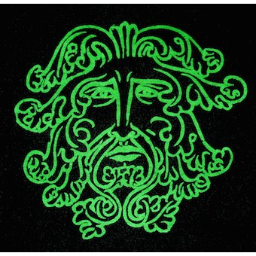Chapter 50 of "The Way" by Teddy Goldsmith contains a very important insight into the way population controls work in a balanced eco-system that both gives the lie to the simplistic Malthusian view of population issues and also points the way to a much more sophisticated discussion of population and how and why this needs to be folded in to our understanding of the crises we are facing.
Entitled "The Internalisation of Control Increases Stability" the chapter is part of a sequence developing a view of how levels within a hierarchy of eco-systems interact and cooperate towards a common goal of stability. In it Goldsmith argues that as natural systems develop their relationship with their wider environment becomes more stable through a process of internalising the controls that limit their interactions with the environment.
Thus initially the limits to the expansion of a population will be set directly by the resources of its environment - if it expands beyond the limit set by the amount of food available then starvation and reduction in numbers ensue.
This crude mechanism was correctly identified by Malthus, but coming from a reductionist scientific approach he failed to see that what actually happens in a more developed (meaning more stable) eco-system is that the controls on population become internalised within the population itself.
For example many birds have developed strong territorial instincts which mean that at the start of the breeding season the male (typically) will stake out a territory and fight to exclude all other males from that area. The standard territory is large enough to feed his family and thus if he succeeds the population level is controlled by the action of the birds themselves rather than waiting for the external environment to impose limits.
This scales up through all species with varying and often highly complex forms of ritual acting to constrain the activities of a population to remain within environmental limits and stabilise the relationship of the society to its eco-system.
So vernacular human societies ("vernacular man" is Goldsmith's term for the various features of a society which are self-organised and self-governing rather than being imposed - essentially what Ivan Illich refers to as the inherent culture of a society. I find this a very useful concept and a more attractive term than talking about "primitive" or "natural" human cultures - an inclusive, or at least neutral term, where "primitive" can carry negative association and "natural" is often used in opposition to "human") will use ritual and culture and religion to provide constraints on reproduction (who you should not take or accept as a sexual partner), resource utilisation (how many wild creatures a hunter should take, how much land a pastoralist should use) and a whole range of other activities that ultimately provide an internalised constraint on population density.
In modern industrial civilisation which is driven by the reductionist approach of rationalist scientific method there is a tendency to throw out these rituals and myths as being irrational and standing in the way of progress. Their replacement by external controls applied by the state or its agencies are no substitute and behaviour becomes out of control.
Once again the four horsemen of the apocalypse with their crude and indiscriminate level of control are all that is left to bring population growth and ecological devastation to an end. "Massive discontinuities become the order of the day as we move towards social and ecological dis-climax." is how Goldsmith concludes the chapter.
But it need not be so. We need to rediscover and recognise the importance of internalised cultural controls on social behaviour, we need to nurture and develop these suppressed instincts that lie within us and which have the ability to provide vernacular control.
We do need to talk about population, but the debate needs to be couched in terms not of food supply and crude numbers, but in terms of what is appropriate behaviour, what is should culturally acceptable in the deep sense, not in the surface sense of externally imposed moral imperatives.
"Thou shalt not bring more than two descendants to maturity" as an externally imposed diktat is not acceptable, but as an imperative arising from your moral and emotional landscape (your internal eco-system) it is a very different form of control.


Comments powered by CComment